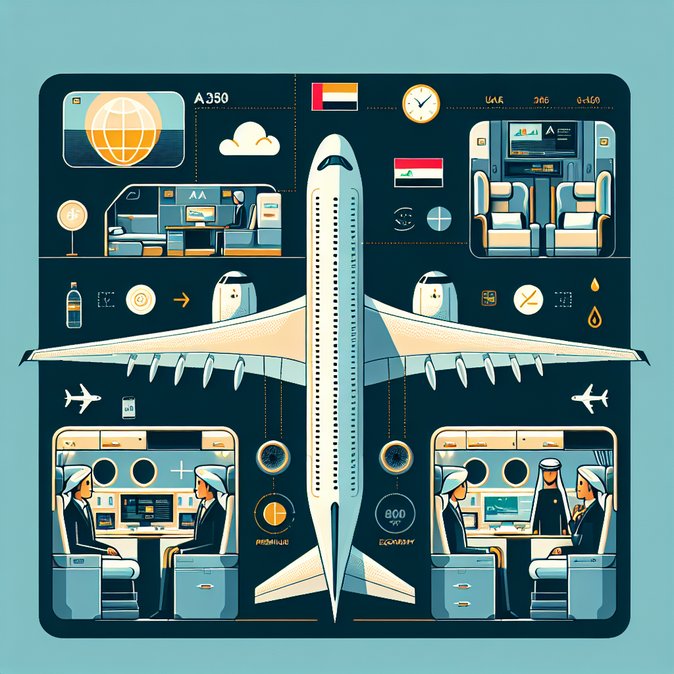
Emirates has confirmed that, effective 1 January 2026, every Dubai–Baghdad rotation will be flown by its new-generation Airbus A350-900, replacing the Boeing 777 previously used on four of the seven weekly flights. The airline introduced the A350 on three frequencies in August but will now standardise the premium-heavy jet across the route.
The switch brings 32 lie-flat Business Class suites, 21 Premium Economy seats and 259 Economy seats, along with quieter cabins, upgraded air-filtration systems and fuel-efficiency gains of up to 25 percent. The move aligns with Emirates’ phased A350 deployment plan for regional markets where corporate travel demand is rebounding fastest.
![Emirates Upgrades Baghdad Service: All Flights to Operate with Airbus A350 From January 2026]()
For UAE-based firms with operations in Iraq—including energy, construction and aid organisations—the upgrade delivers a more consistent hard product and enhanced connectivity onward through Dubai. Travel-policy teams should adjust class-of-service guidelines and fare budgeting, as A350 flights typically command a 5–8 percent premium over the older 777.
Cargo capacity in the A350’s belly holds will decrease slightly, but Emirates SkyCargo says high-value pharma and tech shipments will benefit from better temperature control. Mobility managers relocating staff to Baghdad can leverage the improved reliability and reduced jet-lag claims associated with the A350’s higher cabin humidity and lower noise levels.
The announcement also signals Emirates’ confidence in the Iraq market and follows recent security-related route resumptions by Flydubai and Air Arabia, reinforcing Dubai’s role as the primary staging point for regional reconstruction projects.
The switch brings 32 lie-flat Business Class suites, 21 Premium Economy seats and 259 Economy seats, along with quieter cabins, upgraded air-filtration systems and fuel-efficiency gains of up to 25 percent. The move aligns with Emirates’ phased A350 deployment plan for regional markets where corporate travel demand is rebounding fastest.

For UAE-based firms with operations in Iraq—including energy, construction and aid organisations—the upgrade delivers a more consistent hard product and enhanced connectivity onward through Dubai. Travel-policy teams should adjust class-of-service guidelines and fare budgeting, as A350 flights typically command a 5–8 percent premium over the older 777.
Cargo capacity in the A350’s belly holds will decrease slightly, but Emirates SkyCargo says high-value pharma and tech shipments will benefit from better temperature control. Mobility managers relocating staff to Baghdad can leverage the improved reliability and reduced jet-lag claims associated with the A350’s higher cabin humidity and lower noise levels.
The announcement also signals Emirates’ confidence in the Iraq market and follows recent security-related route resumptions by Flydubai and Air Arabia, reinforcing Dubai’s role as the primary staging point for regional reconstruction projects.





